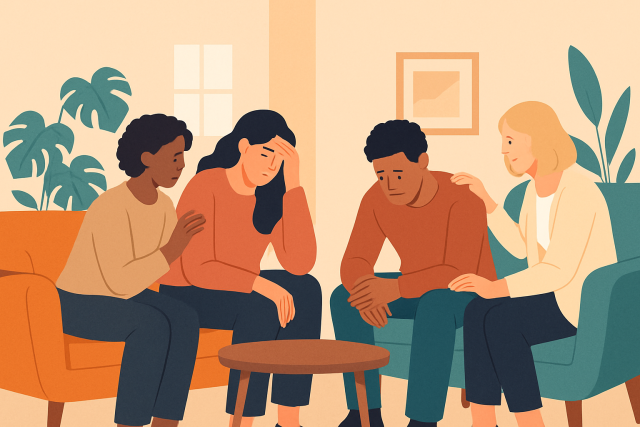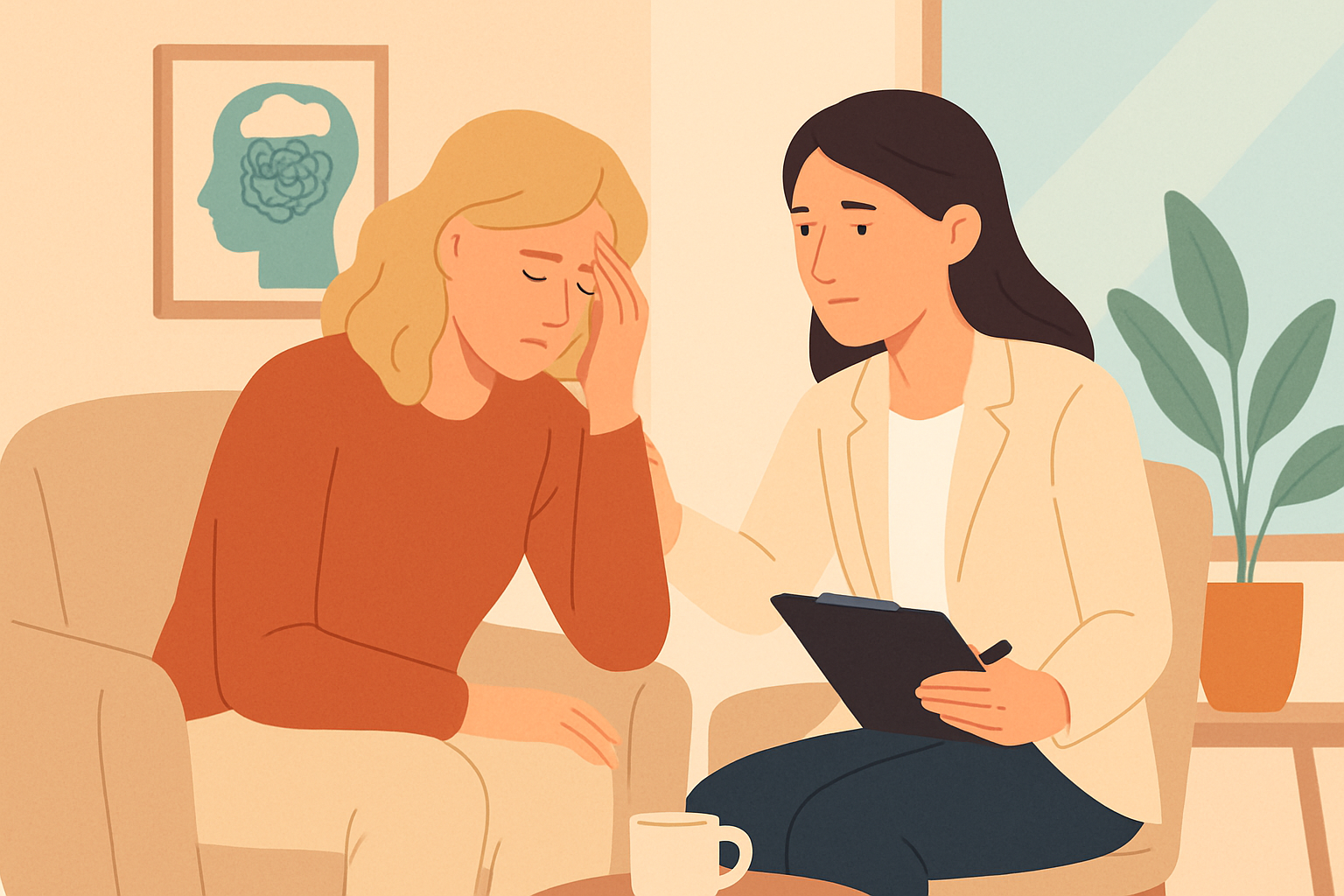
How to Cultivate Relationships During Difficult Times
Discover actionable steps to strengthen and nurture relationships amidst challenges, ensuring emotio...
Loving someone with schizophrenia means walking a path filled with its own set of challenges—and yet, equally profound rewards. It’s a delicate dance between offering genuine compassion for their struggles while also remembering to look after your own emotional and mental well-being.
Schizophrenia is a complex and long-lasting mental health condition that can really shake up a person’s thoughts and emotions. It often comes with episodes of psychosis and brings its own challenges with thinking and feelings.
Schizophrenia really cuts deep when it comes to a person's behavior, emotions and how they interact with others. It often blurs the lines between what is real and what is not and can stir up feelings of mistrust or paranoia that strain relationships. Sometimes emotional numbness or reactions that feel a bit off make staying close to someone tougher than it should be. On top of that cognitive hurdles can trip up communication and make everyday tasks feel like climbing a steep hill.
Loving someone with schizophrenia stirs a rollercoaster of emotions—hopeful moments when things seem calm and fear, frustration and guilt that sneak in unexpectedly. Caregivers can feel like they’re walking a tightrope. They balance hope during stable times but get knocked off balance during relapses. It’s a wild emotional ride with feelings shifting like the wind as loved ones face the unpredictable.
“Loving someone with schizophrenia often means carving out space for their challenges while also keeping a careful eye on your own well-being — it calls for a blend of quiet strength and a big heart, if you ask me.” — Dr. Elena Martinez, Clinical Psychologist
Effective communication takes center stage when you love someone living with schizophrenia. Tweaking the way you interact to spot things like hallucinations or cognitive hiccups can go a long way in keeping trust steady and easing conflicts. Talking clearly and kindly while staying consistent paves the path for better understanding.
Supporting your loved one through treatment means cheering them on to take their medication faithfully, diving into therapy sessions and sticking to healthy daily habits.

Supporting someone with schizophrenia calls for a good deal of emotional strength and careful watch over your own well-being. Otherwise caregiver burnout might sneak up on you before you know it.
Keep a sharp eye out for the classic signs of caregiver burnout—things like feeling emotionally wiped out or snapping at people more than usual. You may also pull back from friends and family or deal with physical complaints like headaches.
Acute psychotic episodes, suicidal thoughts or serious behavioral challenges call for a quick, steady and safe approach—there’s really no time to waste. Having a well-thought-out crisis plan tucked away and knowing exactly who to reach out to in an emergency can make all the difference.
Creating a stigma-free and understanding space at home and in social circles can truly make a world of difference in supporting recovery and emotional well-being.
There are plenty of resources out there to lend a hand to both individuals living with schizophrenia and those caring for them. Books that blend clinical know-how with real-life stories tend to offer some truly valuable insights. Reliable websites usually serve up current advice along with easy-to-find helpline numbers, which can be a lifesaver.
| Resource Name | Type | Description | How to Access |
|---|---|---|---|
| "Surviving Schizophrenia" by E. Fuller Torrey | Book | An in-depth guide that walks you through schizophrenia symptoms, treatments, and handy advice for caregivers who are in the thick of it | Snag a copy at bookstores or grab it online |
| National Alliance on Mental Illness (NAMI) | Website | Offers solid education, support groups, advocacy, and a helpline—think of it as a lifeline for those navigating mental health challenges | Swing by https://www.nami.org |
| Schizophrenia and Related Disorders Alliance of America (SARDAA) | Website | A great place for support and recovery resources, plus community connections through events and programs that bring people together | Head over to https://sardaa.org |
| SAMHSA Behavioral Health Treatment Services Locator | Website | Your go-to tool for finding local mental health services when you need treatment or just some extra support | Check out https://findtreatment.samhsa.gov |
| Mental Health America (MHA) Caregiver Toolkit | Online Tool | Packed with practical tools for caregivers, including symptom trackers and stress-busting strategies to help keep things manageable | Visit https://mhanational.org/caregiving |
| Crisis Text Line | Helpline | Round-the-clock, 24/7 crisis support that’s just a text away when emotions run high | Text HOME to 741741 |
Loving someone with schizophrenia calls for empathy, a good grasp of the situation and a careful eye on your own wellbeing.

Discover actionable steps to strengthen and nurture relationships amidst challenges, ensuring emotio...

Slow burn relationships build love gradually, creating strong, lasting bonds. Discover the signs tha...

Are relationships truly built on shared memories, or is there a deeper foundation that sustains last...

Broken trust can fracture any relationship, but healing is possible. Discover practical, step-by-ste...